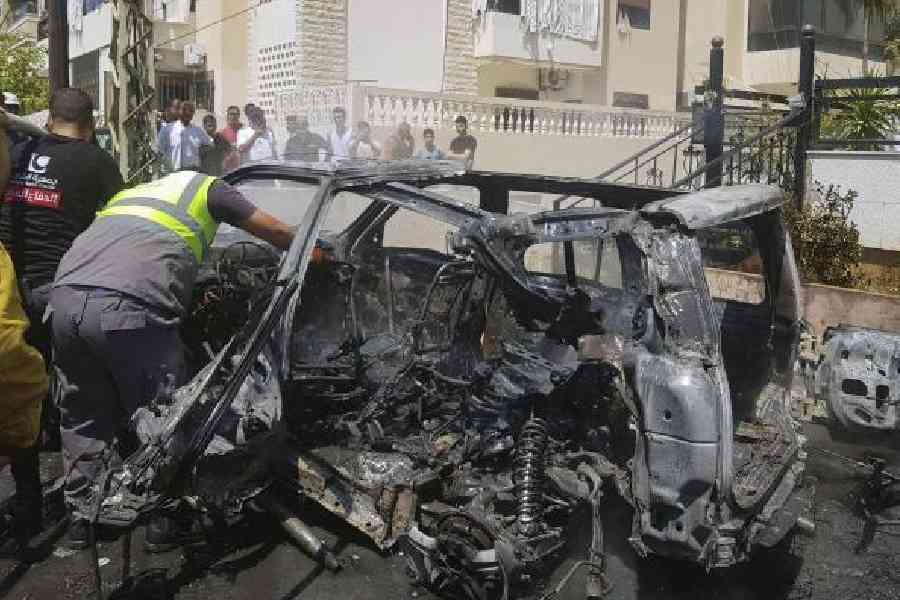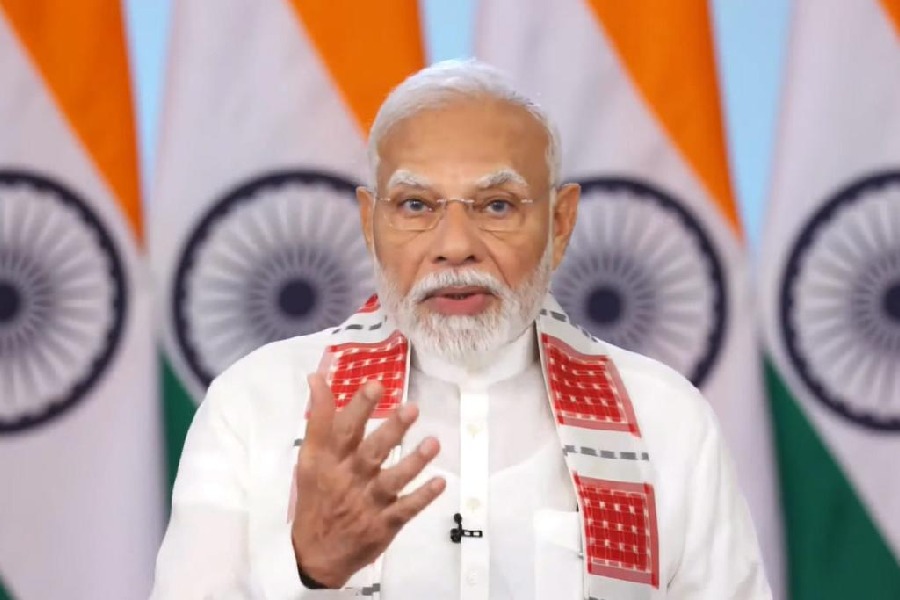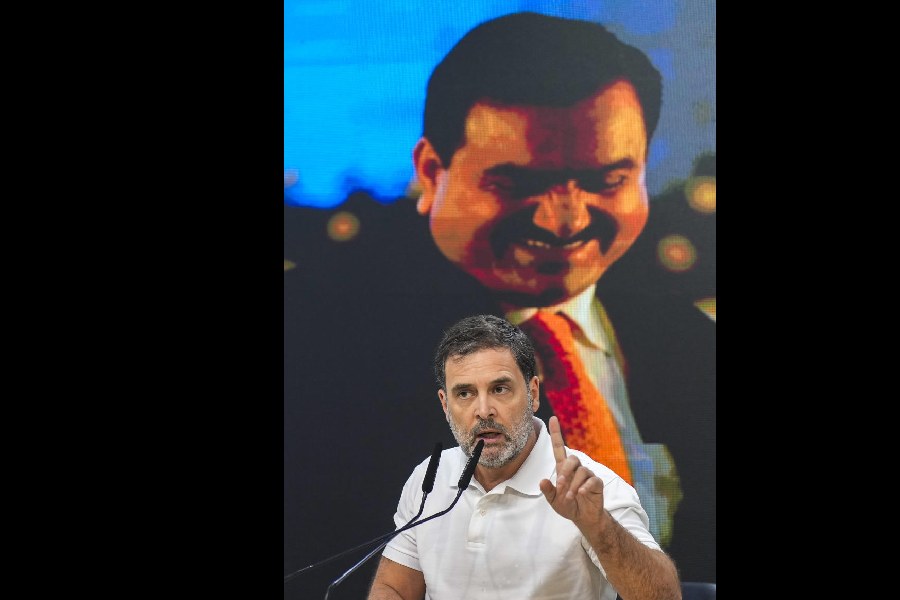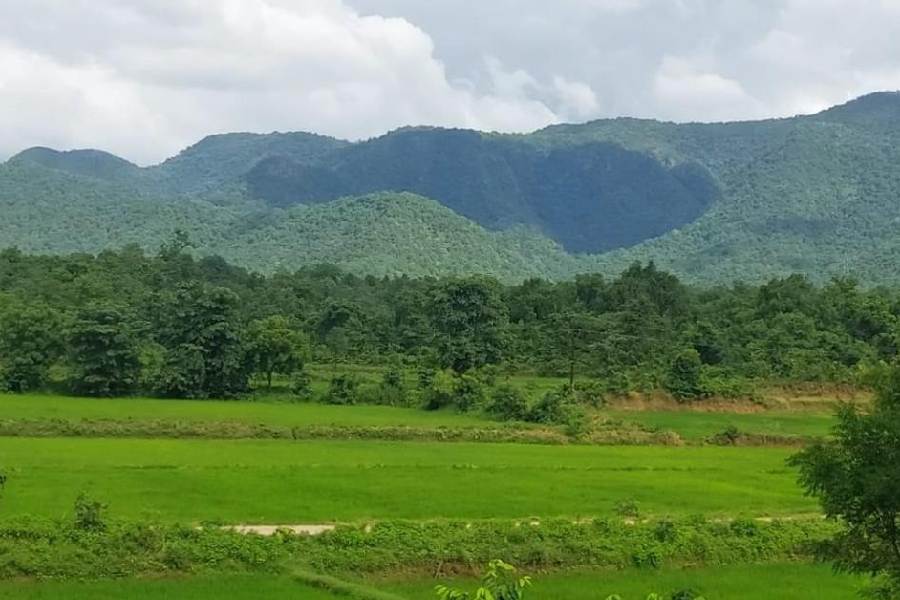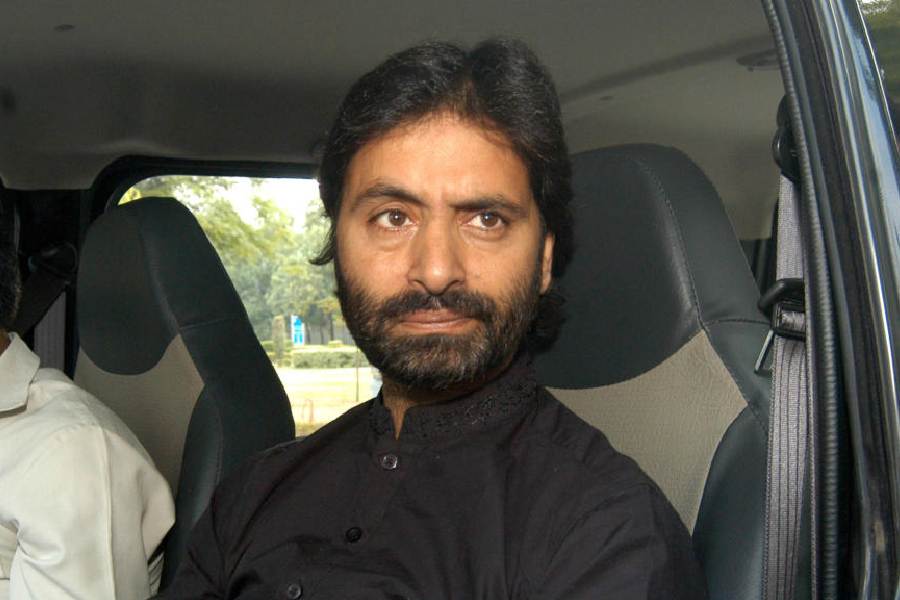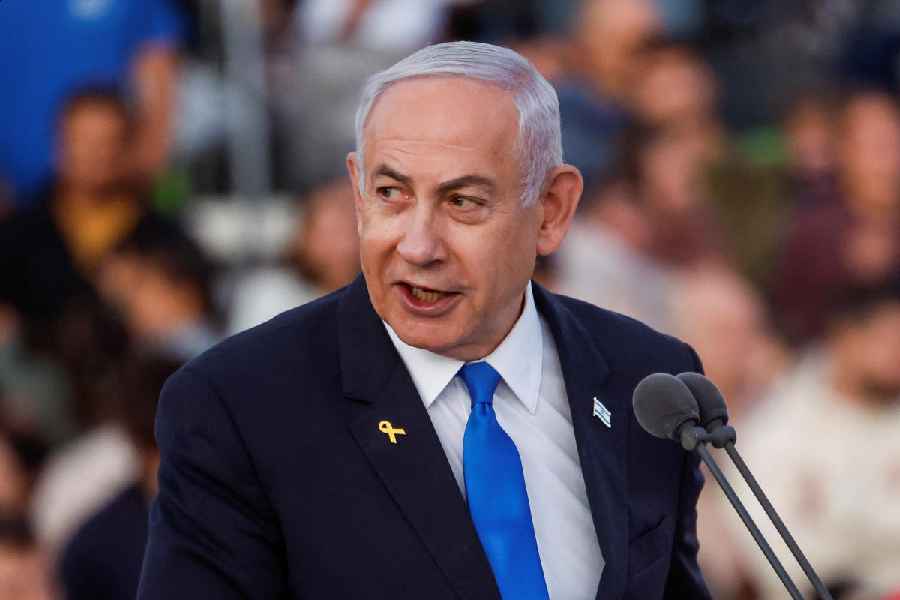For weeks, Israelis have waited in trepidation for a major attack by Hezbollah in retaliation for Israel’s assassination of a senior commander of the Lebanese group in Beirut last month, amid widespread fears that a cross-border escalation could spiral into an all-out regional war.
But much of Israel woke up on Sunday to find that at least for the immediate term, the long-dreaded attack appeared to be over almost before it started.
Both Israel and Hezbollah quickly claimed victories of sorts: Israel for its predawn pre-emptive strikes against what the military said were thousands of Hezbollah’s rocket launcher barrels in southern Lebanon; and Hezbollah for its subsequent firing of barrages of rockets and drones at northern Israel, which the Israeli military said killed a naval officer.
Israel on Sunday launched what it described as a pre-emptive strike against a major attack that Hezbollah was planning on Israeli territory. By breakfast time, the two sides were employing the language of containment.
Hezbollah announced that it had completed the “first stage” of its attack to avenge the assassination of the senior commander, Fuad Shukr, and appeared to be calling it a day, at least for now. Israel’s defence minister, Yoav Gallant, said he had spoken with the US secretary of defence, Lloyd J. Austin III, and they had “discussed the importance of avoiding regional escalation”, according to a statement from Gallant’s office.
Hezbollah’s leader, Hassan Nasrallah, said in a speech on Sunday evening that his group had attacked an Israeli intelligence base, Glilot, just north of Tel Aviv. If the results of the attack on the base turned out to be satisfactory, he said, the militia would rest its case.
If it turned out to be a failure, he added, then Hezbollah reserved the right to respond at a later date.
After the attacks, West Asia remained on edge, the days ahead uncertain.
“There can be stages,” cautioned Ehud Yaari, an Israel-based fellow of the Washington Institute for Near East Policy, a research group. “You can have escalation that is gradual.”
Later on Sunday morning, the Israeli military said it was continuing to strike Hezbollah launchers in southern Lebanon. Hezbollah is estimated to possess tens of thousands of rockets and a smaller number of more sophisticated, precise missiles.
And Iran, Hezbollah’s patron, still has an open account with Israel, blaming it for the assassination of Ismail Haniyeh, the political leader of its ally Hamas, while he was in Tehran, just hours after the killing of Shukr. Israel officially took responsibility for Shukr’s death but not for Haniyeh’s.
In broadcast remarks delivered at the start of a government meeting on Sunday afternoon, Prime Minister Benjamin Netanyahu of Israel declared that the morning’s events were “not the end of the story”. But by then, life in Israel had largely returned to routine.
Based on intelligence, Israel took the decision to pre-empt Hezbollah’s attack on Sunday “but not to go beyond”, Yaari said. The targets that Israel struck were all less than 30 miles inside Lebanon, he said. Israel said they were focused on thwarting the threat to Israeli forces and civilians from Hezbollah’s arsenal of rockets and drones, not its wider assets or infrastructure.
Hezbollah, for its part, appears to be “signaling that it is done for now”, Yaari said. “At the same time, they are saying this was the first stage of retaliation, leaving open the option to do more, if they get a green light from the Iranians,” he added.
Iran claim
Iran said on Monday that Israel had lost its power to deter and that the strategic balance in the region had shifted against it, following attacks by the Lebanese armed group Hezbollah.
“Despite the comprehensive support of states like the United States, Israel could not predict the time and place of a limited and managed response by the resistance. Israel has lost its deterrence power,” Iranian foreign ministry spokesman Nasser Kanaani wrote on X.
Kanaani added that Israel “now has to defend itself within its occupied territories” and that “strategic balances have undergone fundamental changes” to the detriment of Israel.
Any major spillover in the fighting, which began in parallel with the war in Gaza, risks morphing into a regional conflagration drawing in Iran, Hezbollah’s backer, and the US, Israel’s main ally.
New York Times News Service

